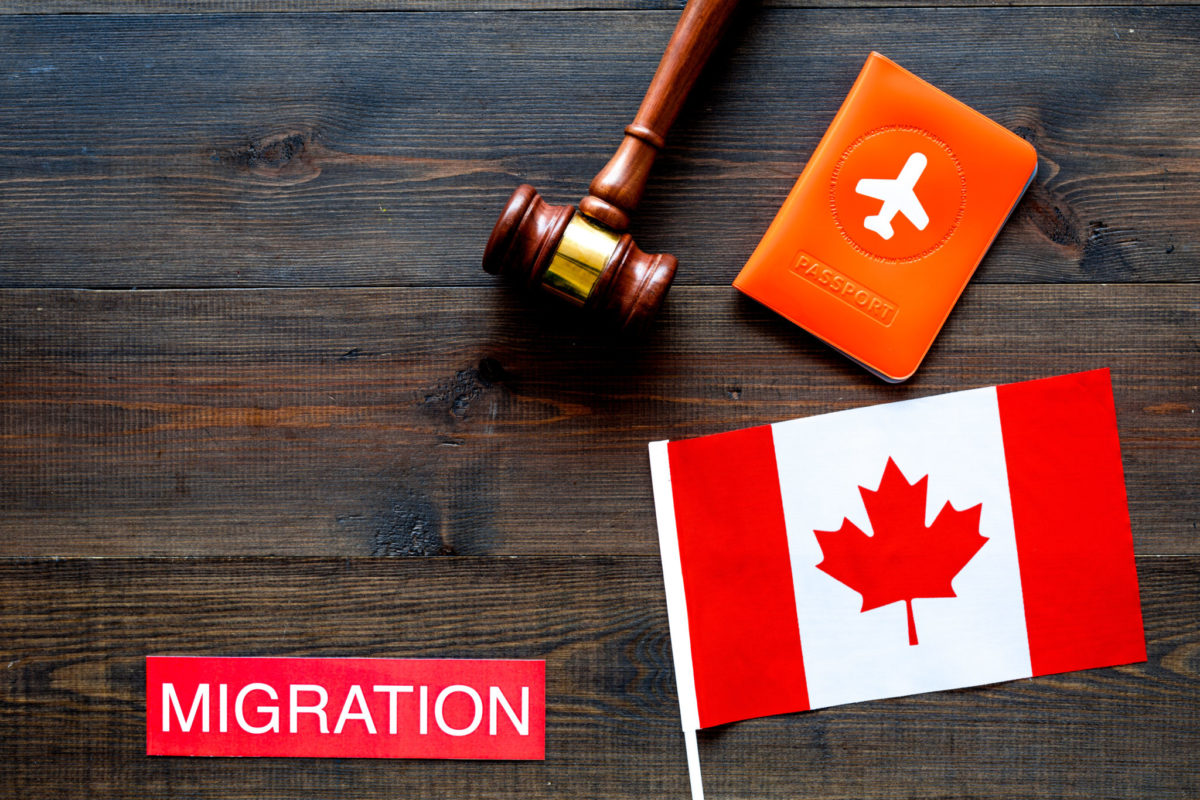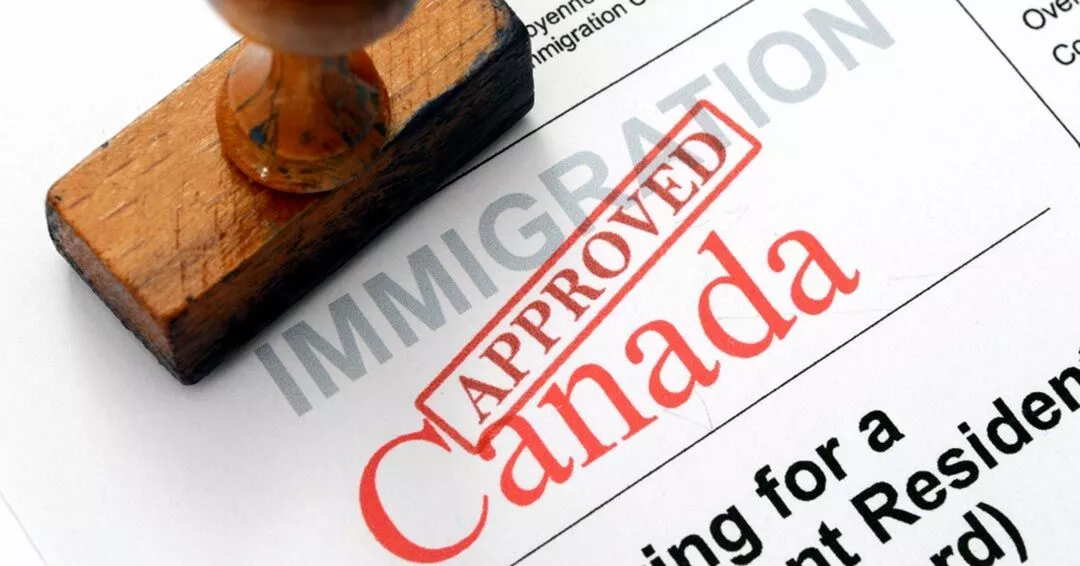High In-Demand Jobs for Immigrants in Canada: Canada offers a comfortable lifestyle and a good set of immigration programs that attract people from around the world. Trying to secure permanent residence in Canada and employment in that case can help speed up the immigration process and also adapt to a new place.
Canada is known to be a lovely country with friendly people, a welcoming economy, and lots of opportunities. But achieving success and stability as a Canadian immigrant depends on your ability to identify employment prospects and evaluate the lifestyle they will afford you.
A Pew Research Center report published on March 14, 2019, says that individuals who stay in Canada have the foremost positive view toward immigrants than any of the world’s top 18 immigration destinations.
In accordance with the international survey, 68% of people living in Canada believe that immigrants make their country stronger.
This makes up for some of the reasons why Canada may be a top immigration destination. With the growing increase in job opportunities, the country is consistently seeking individuals that would take up these positions.
If you’re trying to hunt greener pastures in Canada, know that you simply are going to be most welcome, but it is advisable that you become skilled in order for you to increase your chances of gaining employment within the country.
Although there could be a couple of challenges along the way when finding employment in Canada as an immigrant, with the knowledge on how the work market works there you’ll have more chances for fulfillment.
During your job market research, you will need to cover some significant aspects of job hunting:
- Why job offer is vital for immigration?
- Where can immigrants find a job?
- the way to prepare resume & cover letters?
- What jobs are in-demand in Canada?
While there are many opportunities across Canada within a huge variety of positions, sectors like health care, construction, and natural resources stand out for potential growth within the coming years.
List of High In-Demand Jobs for Immigrants in Canada
This explains why there are many profitable job opportunities in these sectors in Canada. Here are 4 well-paying job sectors for immigrants in Canada:
Tech and IT Jobs
With the rapid advancement of technology around the world, Canada is making its mark as one of the modern countries with a continually growing IT sector. This also helps in generating quite a number of job opportunities for skilled workers that belong to the Tech and IT sectors.
Canada does not only provide good opportunities for employment but has also proven to be an excellent place to invest your capital in and begin your own business in IT.
Various jobs in the Tech and IT sector of Canada have sprung up to be hot in-demand jobs for immigrants, some of which include:
- database and system analysts
- software engineers
- administrators
- technicians
- IT managers
- business intelligence analysts
- cloud system engineers
- full-stack developers
- security professionals (data information and cloud system)
- web developers
- consultants.
Different public and individual-owned firms and investors are drifting towards particular regions of Canada, with Ontario, Alberta, Quebec, and British Columbia leading in IT sectors. Toronto and Montreal are the focal points of the tech market within the country with immense talent and opportunities for immigrants.
Managerial and Business Development Jobs
Management and business development jobs are classified as high-skilled jobs, and you can find many job positions in demand in this sector that are useful for speeding up the immigration process for Canadian Permanent Residence.
Underlisted is a list of the hottest in-demand Managerial and Business Development Jobs for Canadian Immigrants:
- marketing specialists
- project managers
- IT managers
The field of project management is an increasingly growing field with many high-skilled workers required on an annual basis. Therefore, with the proper level of education, skills and knowledge, one can find more than a few numbers of in-demand jobs within the category of project management for immigration.
For management and business development, you’re required to possess sufficient insight and knowledge about the Canadian job market.
The type of business training and knowledge that one can get in Canada is exceptional, as you’ll find a really diverse and innovative atmosphere with people from all walks of life; asides from the handsome pay and permanent residence benefits which makes it a really profitable investment for business-minded people and managers.
Managerial jobs are wanted across the country. However, it’s believed that there are especially many opportunities within the cities of Toronto, Vancouver, and Montreal. Probably, most of the job openings are centered within the provinces of Alberta and Manitoba.
Accounting and Finance Jobs
The main core of accounting and finance jobs in Canada is within the province of Ontario, but one can find a job in any part of the country with a highly skilled education and knowledge in the accounting and finance sector.
For accountants, the Canadian government requires you to possess Public Accountants Council or Chartered Professional Accountants recognition/registration.
The salary packages are quite good and you enjoy tons of advantages alongside your base salary by holding the status of a Canadian Permanent resident.
Educational Sector Jobs
Teaching is one of the leading in-demand jobs in Canada but finding the most convenient place to seek out work is crucial when it involves the immigration process. Although teachers are in need in almost every province in Canada, the level and kinds of teaching jobs vary from province to province.
Teachers are treated well nationally and do not only earn very attractive salaries but great work benefits too. According to PayScale, most teachers in Canada earn an average salary of $68,321 on yearly basis but can earn up to $96,000 based on work experience, qualification, and level of the profession. Teachers can also anticipate benefits like employment insurance, sick and paid parental leave, among others once you prefer to teach in Canada.
But as mentioned previously, choosing the proper place to immigrate to Canada is perhaps even as important as choosing the proper immigration program.
Other High-In-Demand Jobs for Canadian Immigrants
Other High in-demand jobs available for immigrants who are skilled workers in Canada are as follows:
- Industry jobs like waiter/server, receptionist, and nurse.
- Mechanical jobs with heavy-duty/large machinery repair and maintenance within the sector of production and energy
- Retail jobs within the sector of sales, marketing and merchandizing, which also includes store managers and administrative responsibilities.
- Engineering sector with opportunities in Electronics and Electrical Engineering and other fields that play a serious role within the economic development of the country.
- Sales jobs including salespersons, associates, representatives, and managers.
There are a variety of ways to seek high-in-demand jobs in Canada for immigration. The primary step is to devise a presentable and impressive cover letter and resume to grab the eye of the recruiter.
Once you’re invited for the interview, it’s important to try to carry out your research about the corporation in order for you to properly convey your interest to the employer. The most convenient platform to seek a job in Canada includes job boards and online portals, direct company websites, immigration agents, and personal connections.
Job hunting in any foreign country is often challenging. To ease it you’ll consult RCICs – immigration consultants, who have helped many immigrants settle in Canada.








